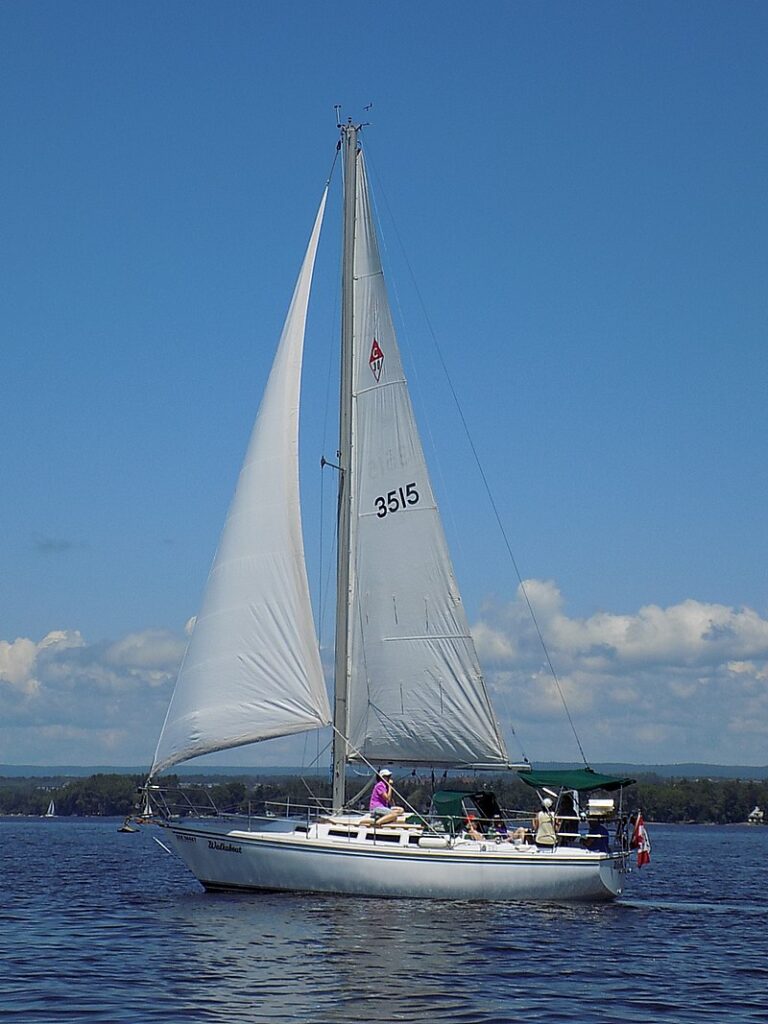
Designer and builder Frank Butler is in many ways a contradiction in terms. On the one hand heís an innovator and a risk taker. On the other, he takes those risks and uses those innovations to build boats for the common man; good solid boats that combine performance and comfort without costing an arm and a leg.
This design philosophy is perhaps best expressed in the Catalina 30, a racer-cruiser that set the trend for many of today’s most successful lines and is itself still going strong after a production run of 25 years and more than 6,500 boats.
Introduced in 1975, the Catalina 30 was intended to “offer more for less” in a way that had never been done before. Butler gave the boat extra beam and freeboard for accommodations as well the option of a standard or tall rig, and deep and shoal-draft keels for different performance characteristics.
Inside, he used the then cutting-edge practice of installing hull liners with premolded berths and seats to create even more space, and moved the engine compartment closer to amidships to open up room for a large double quarterberth on the starboard side.
Compared to today’s performance cruisers, the dimensions of the Catalina are fairly conservative. But at the time, Butler was venturing into unknown territory, and in doing so pulled off a real coup, creating a boat that was new and different but still “yare.”
He also created, in many ways a dark-horse speedster, a boat that, while comfortable, is winning races in both one-design and handicapped fleets to this very day.
Within months of its introduction, one of the very first Catalina 30s sailed to back-to-back victories at the Newport-Ensenada and Marina Del Ray-to-San Diego races, under the old LOR rule. The Catalina National Regatta regularly draws up to three dozen boats. The Catalina 30 La Maria won its division at the 2000 Southern California PHRF Championship regatta held by the Southern California Yachting Association (SCYA).
“The boat has probably been out designed with new materials on newer boats, but we’re still pleased with its performance,” said Catalina’s long-time production chief Gerry Douglas. Thousands of Catalina 30 owners couldnít agree more.
Todayís Catalina 30 Mark III comes equipped with a walk-through transom, a redesigned rudder, and 1-shaped cockpit; the earlier shoal-draft fin has been replaced with a shallow winged keel. Beyond that, however, the 21st- century version of the Catalina 30 is essentially the same as the boat that rolled off the production line a quarter century ago, with an identical canoe body, deep keel and rig that makes it class compliant for one-design racing against other boats that are more than two decades old.
Catalina Yachts has a policy of never discontinuing a model as long as there’s a demand for it, which means this milestone in yacht design is far from a museum piece.
“As long as people keep buying them, weíll keep building them,” Douglas said, of Catalinaís attitude toward the venerable 30. Butler himself said he never likes to “kill” a design unless absolutely necessary.”The boat has always been one of my favorites,” he said. “You can make a lot of mistakes on her and sheíll forgive you. She loves heavy air.”
Clearly, it’s a good thing the practical and affordable Catalina 30 will be introducing sailors to both cruising and racing for years to come.
-Adam Cart, SAILING Magazine